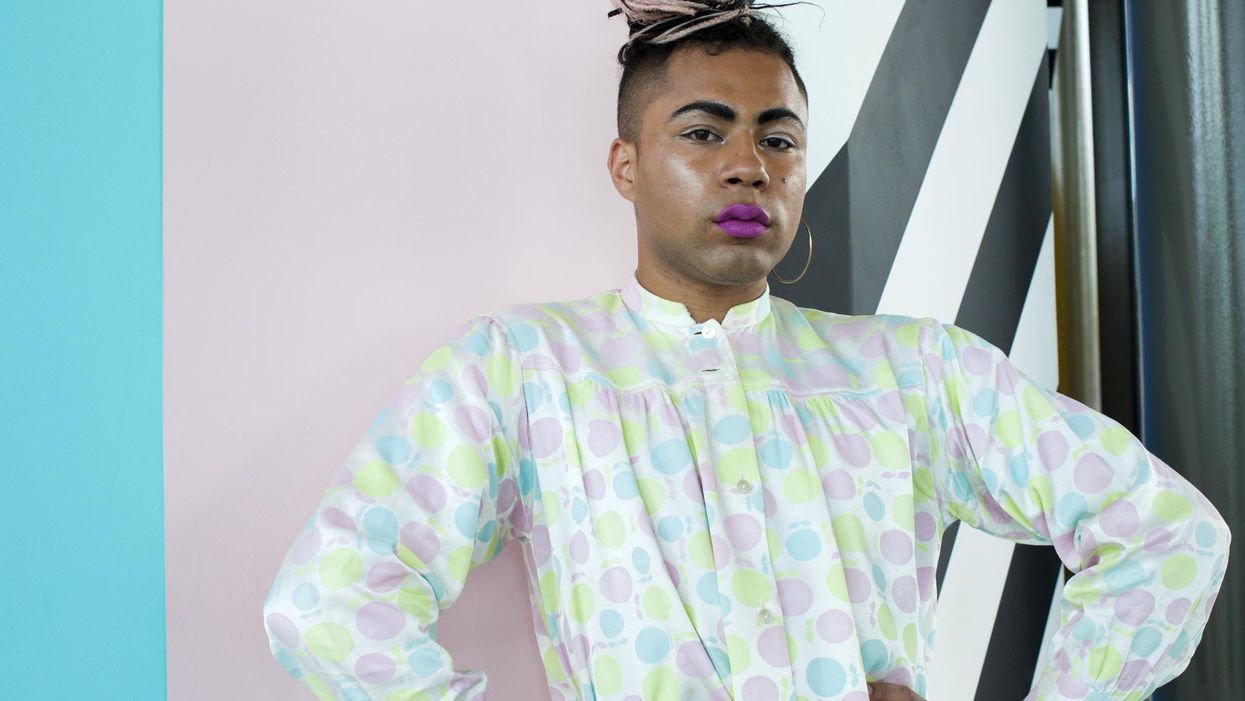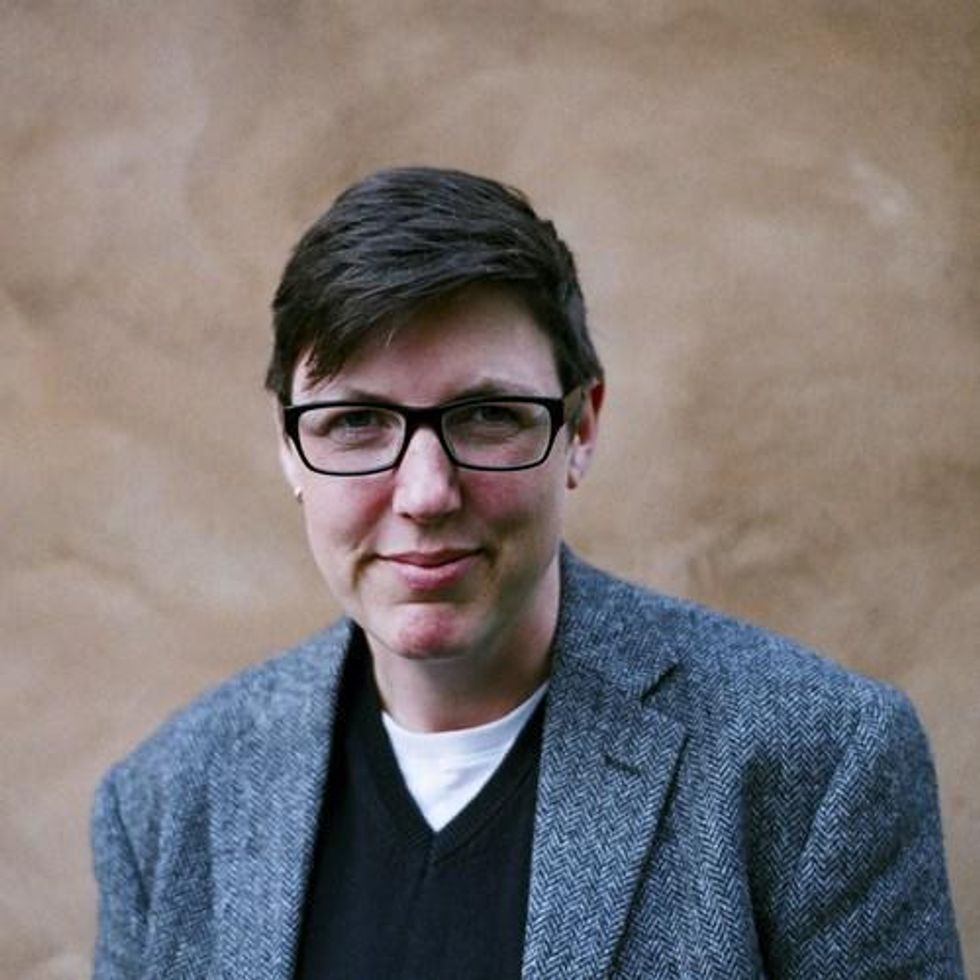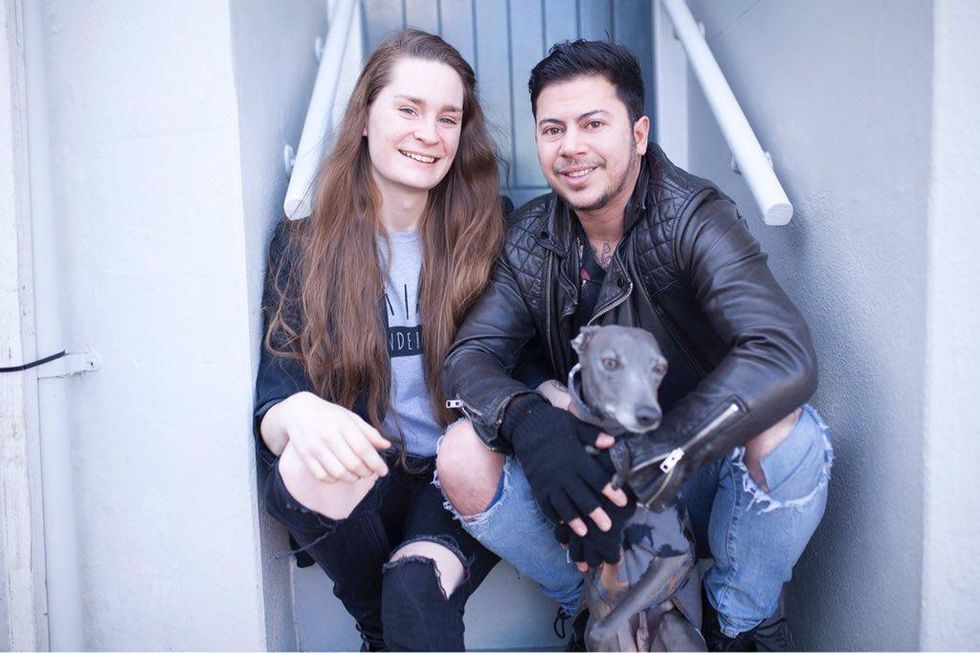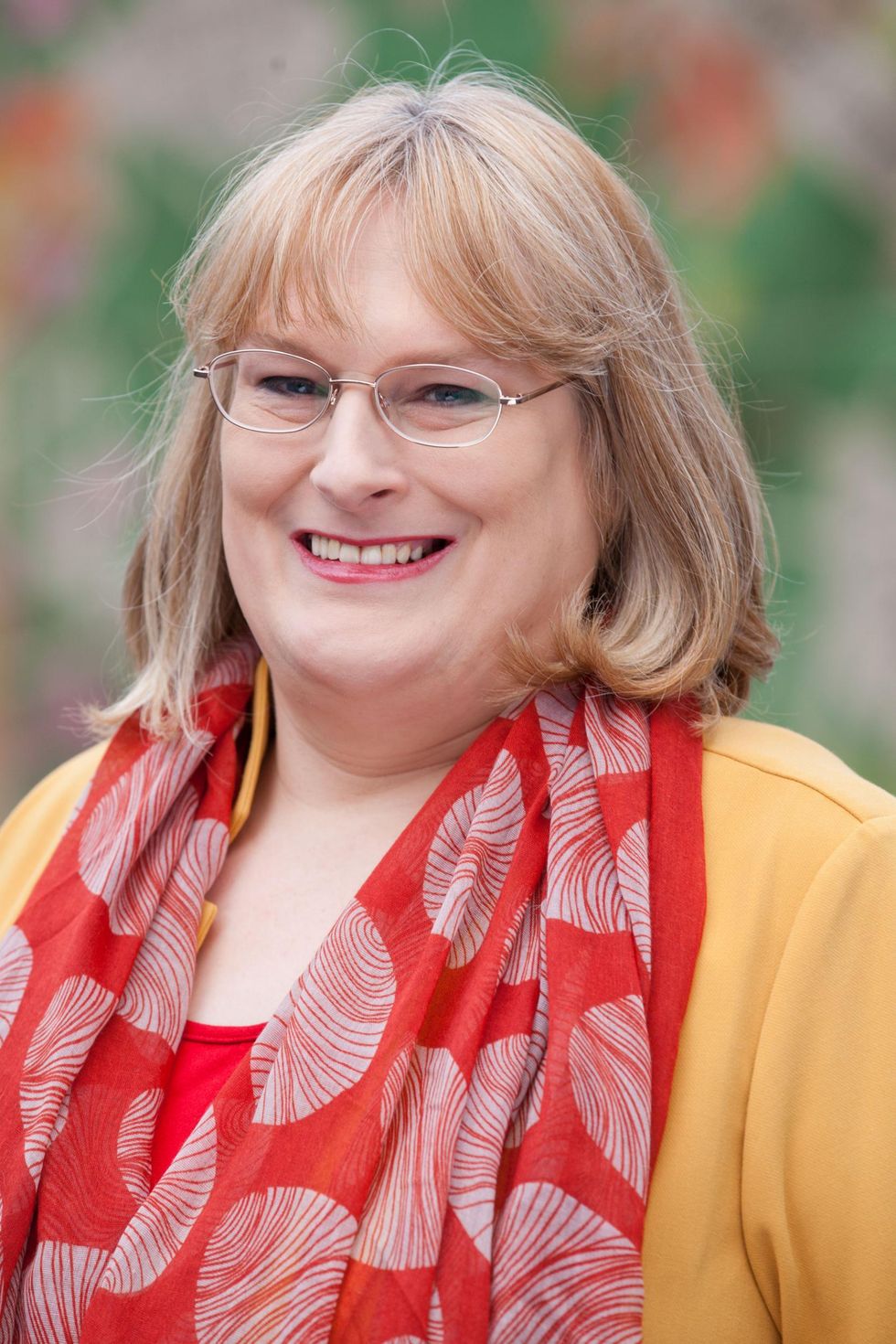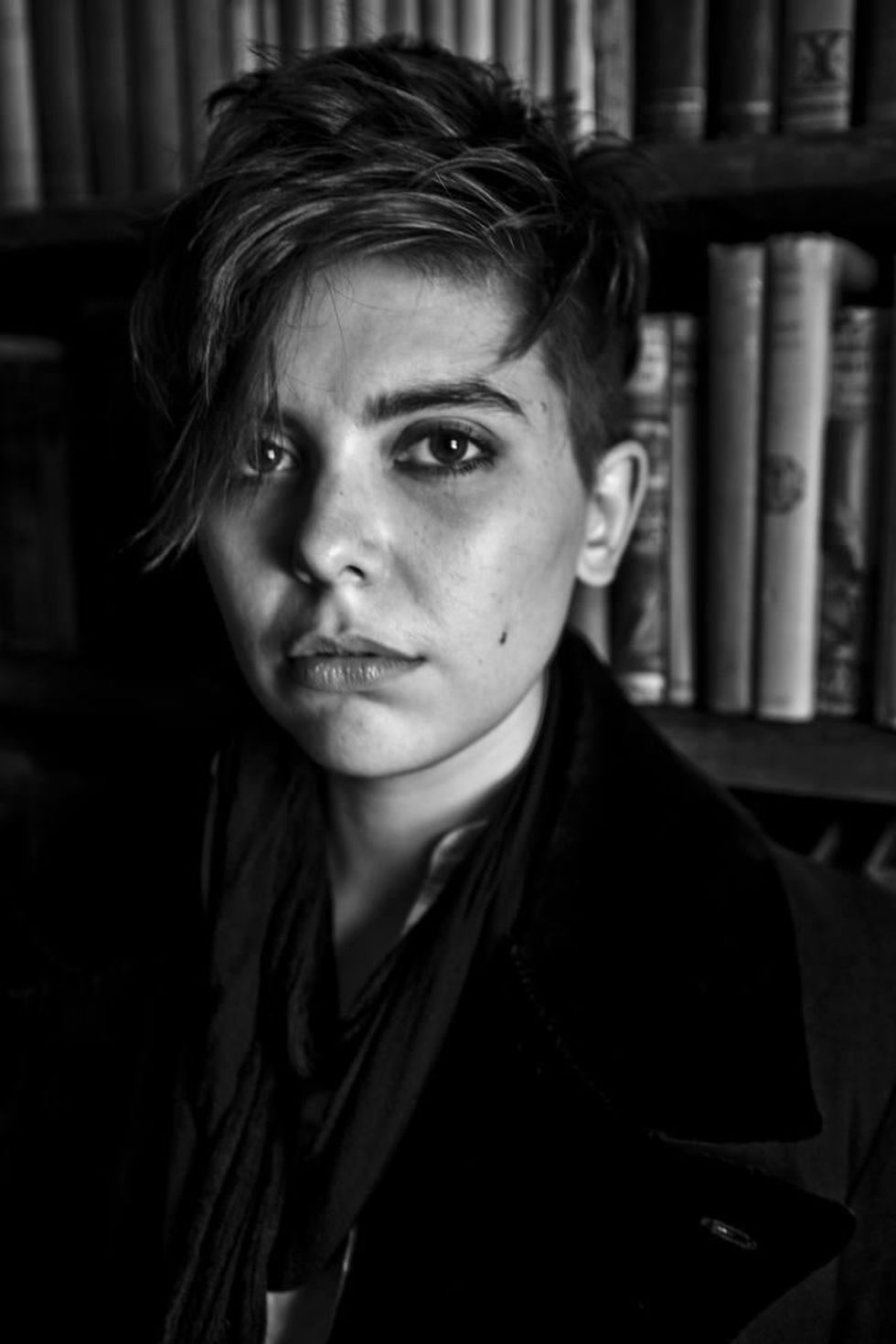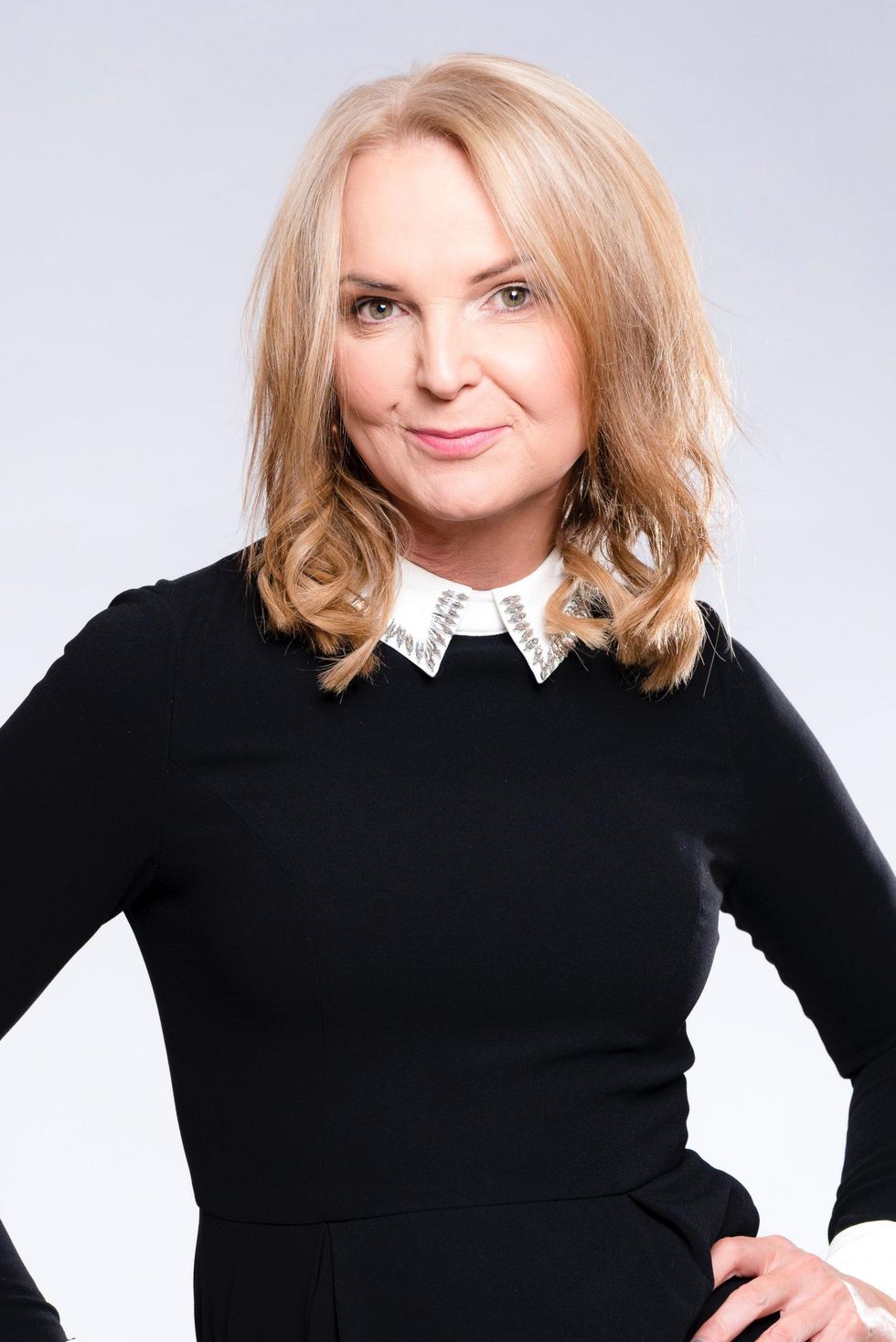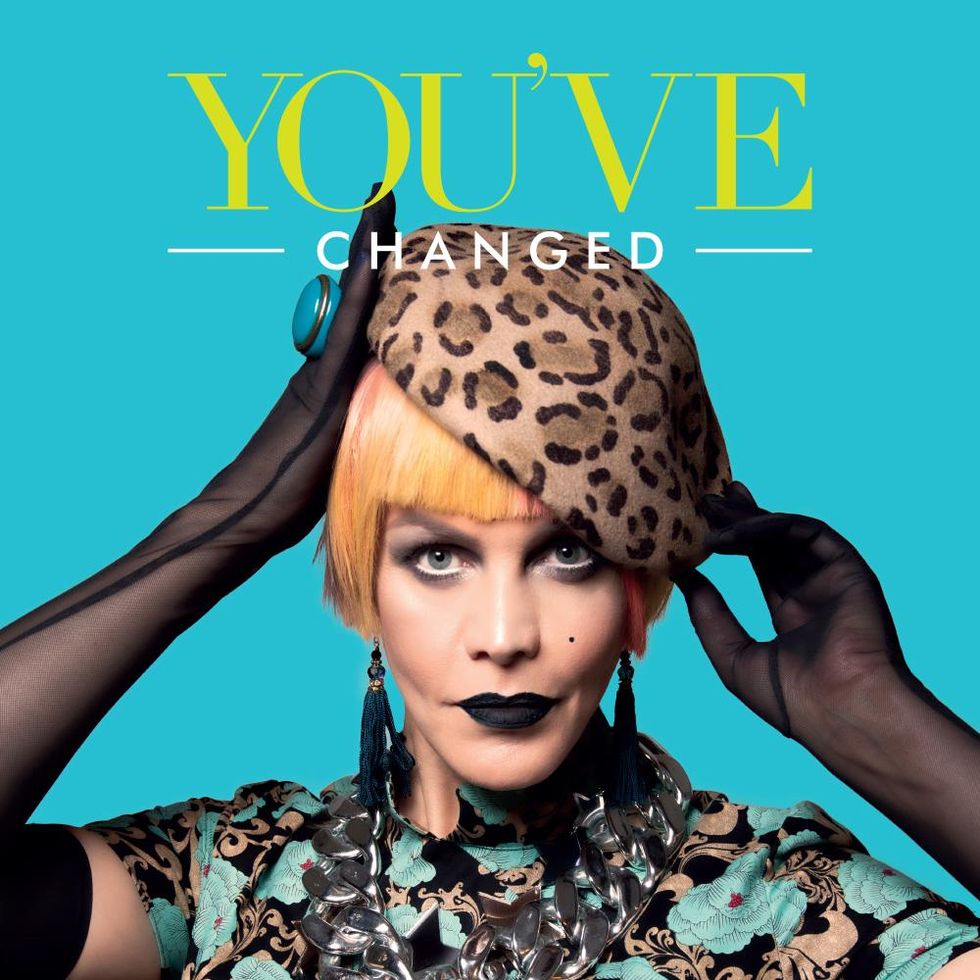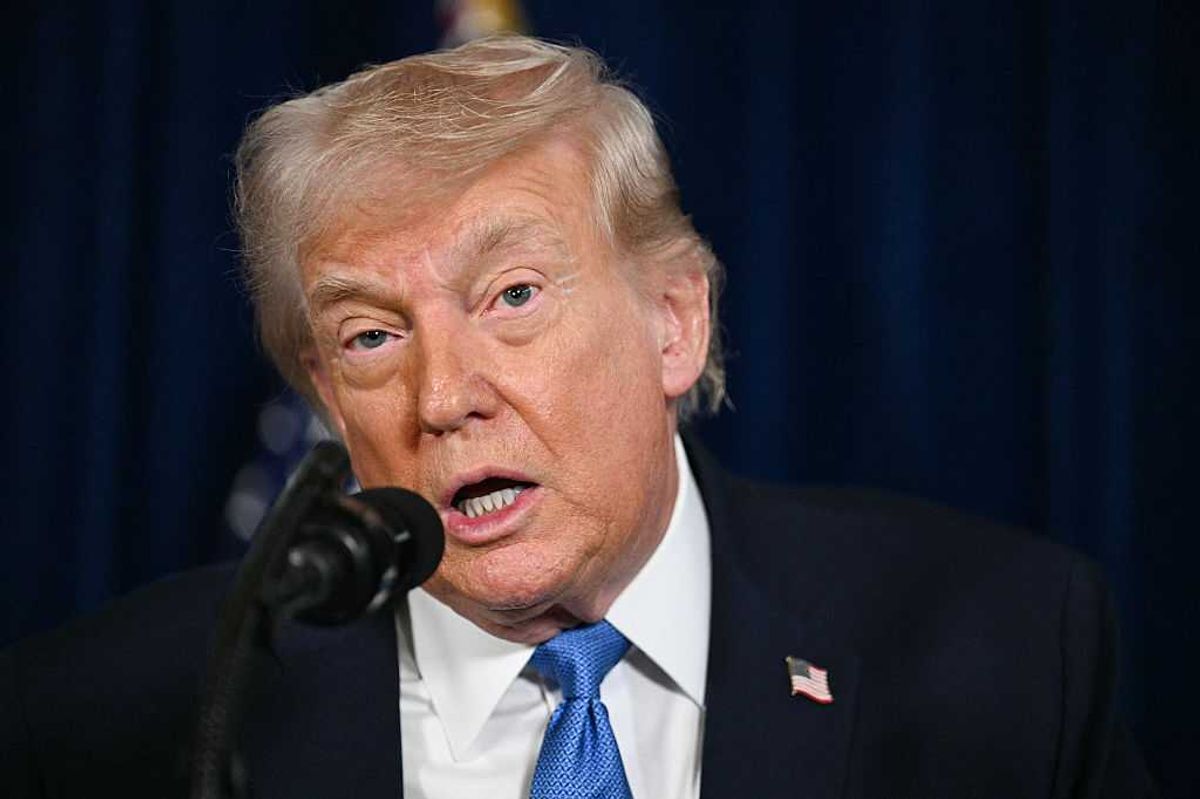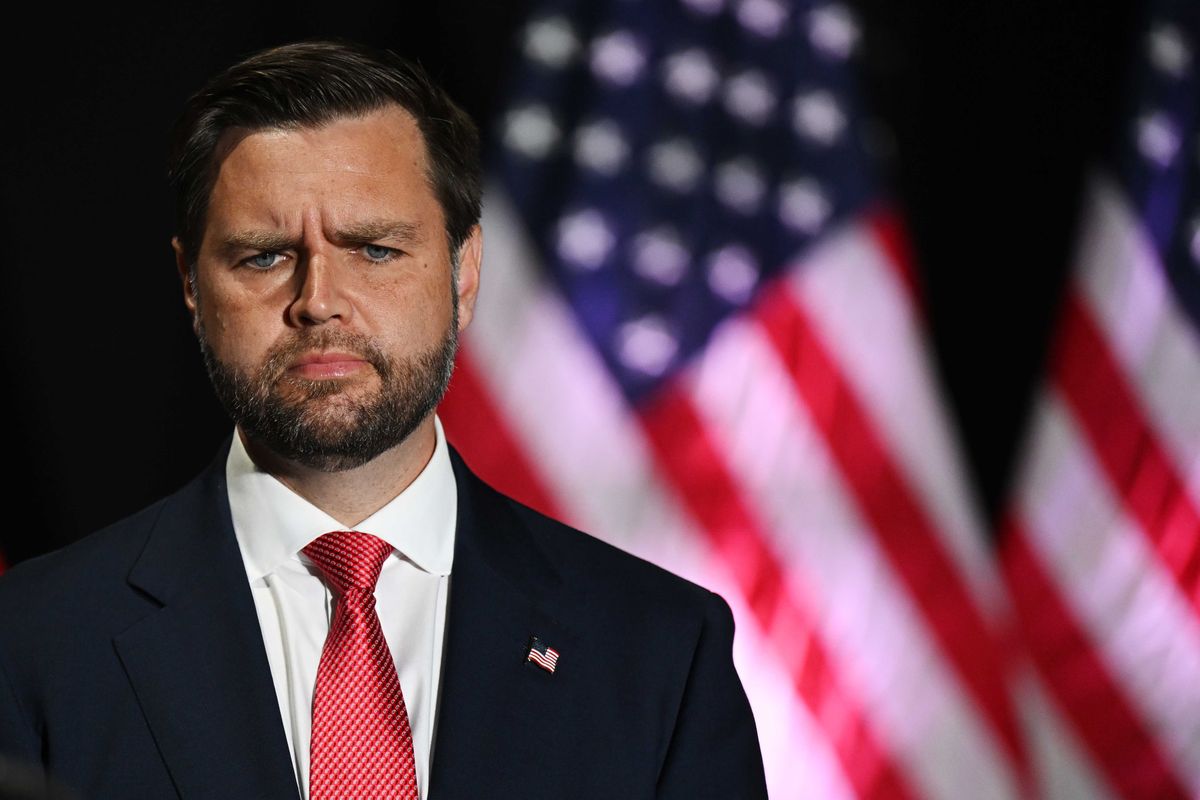Ryan Butcher
May 17, 2018
Trans people are all around us. They're our doctors and nurses; our lawyers and bankers; our journalists and artists; our neighbours and our loved ones.
One resolution many cisgender people are making this year – cisgender, by the way, means you were lucky enough to identify as the gender you were assigned at birth – it's to be stronger allies to the trans community; to do more; to be better; to stand shoulder to shoulder with our trans siblings in the face of their persecution.
To get you started, indy100 asked 14 leading trans and non-binary activists, campaigners and voices about the transphobia they experience on a daily basis and how we can all be better allies to the trans community.
But don't just listen to their advice now. Follow them on social media. Support their work. Help them feel included and valued in society.
Just be a good person, basically.
(Note: some of our trans and non-binary contributors prefer to use the gender-neutral pronouns "they", "them" and "their as opposed to masculine or feminine pronouns.)
1. Shon Faye.
A trans feminist writer, journalist and comedian, Shon is the LGBT+ editor-at-large for Dazed and discussed queer representation and politics in the media with her Novara Media series Shon This Way.
“It’s important for cis people to remember when trying to support trans people that we can be experiencing transphobia in multiple ways at any given time,” she told indy100.
“For example, early on in my transition I would be harassed and spat at outside on the street by men and then I’d receive online abuse later that same day as part of the anti-trans sentiment that you see online, and while that was happening I was having problems with my mental health that were so bad that I couldn't work, meaning I had very little money. So I felt isolated because I couldn't socialise, and this was all while I was living with my family who hadn’t quite got on board yet, so I was still being referred to with male pronouns – so all at once I was receiving quite a lot of problems.
“I was very afraid to ask for help, so one of the things you can do is be really proactive in asking trans people if they need support, what support they need, and maybe realise they aren’t sharing everything with you.
“Another thing is to just challenge transphobia wherever you see it. If you’re a gay man, try and challenge it in the queer community. If you’re a feminist, it’s about seeing where there is transphobia in feminist spaces. It’s about not letting the burden fall to trans people to always make the complaint because we often get the harshest backlash for challenging those things. And when we experience transphobia, it feels like a personal attack.
“Trans people also have an expectation of rejection because of things like family rejection, bullying at school, exclusion and a lot of trauma that carries through a trans person’s life – particularly around the time they come out as trans. It takes time to actively include trans people and that involves consulting with us, and sharing time and resources with us. If you’re organising something – LGBT+, feminist or even anything community-based – recognise that trans people are used to being excluded, so sometimes it takes a proactive step to make sure we do feel included.
And sometimes, for me, I’ve found the most helpful thing is when cis people just challenge transphobia themselves without necessarily involving me! Just because I have enough of it to deal with!
"I think people are afraid to act out and take a side because they’re afraid of getting it wrong, but I also think being visible and being willing to challenge transphobia whatever the context – in the workplace, in school, wherever – and not necessarily involving the trans person can take quite a lot of the stress out of our hands.
“Finally, if you have trans people in your life or trans friends, I think it’s really important to remember that trans people are really sick of discussing our gender and it’s important for trans people to be allowed space to talk about other stuff. Sometimes just having a conversation with someone or just decentring the importance of their gender identity can be really useful, because trans people are often made to be the go-to experts on transphobia and gender, and sometimes people forget they have other interests and pursuits.”

2. Jake Graf.
Jake is an award-winning writer and filmmaker whose first five films – XWHY, Brace, Chance, Dawn and Dusk – were all nominated for the prestigious Irish Prize. He also appeared in The Danish Girl and more recently played the role of a trans woman in the short film Love Without Boundaries. He's also the patron of the charity Mermaids which offers support for gender diverse children and their families.
"While the current media onslaught would appear to be a backlash ahead of reviews of the Gender Recognition Act [currently delayed] and following several years of largely positive coverage of trans issues, it's hard not to feel personally attacked when much of the press is questioning our very right to exist," Jake told indy100.
"Now more than ever, allies' support is vital as there are too few of us to always make our voices heard, and certainly too few in the public eye.
"It's hard for cisgender folk to understand how utterly disheartening and soul destroying it is to have your identity questioned on a daily basis in the national press, with the coverage steadily growing in vitriol.
And when those attacks start to focus on trans youth and trans children, something needs to change - and fast.
"As a 'passing' trans person, I often witness transphobia from a cis perspective, and the mistrust and disdain that people show for trans folk is really quite shocking.
"Working in film, a largely cis male environment, transphobia and homophobia can be fairly commonplace. On a recent project, a particularly unpleasant set dresser kept using the word 'tranny', referring to the lead in the story. As the trans director of the project, I asked him several times not to use the term, but it was my cinematographer who eventually snapped and told him that his language was extremely offensive and wouldn't be tolerated.
"Sometimes you just need someone cisgender to step in and go to bat for you: their voices are much less likely to be met with ridicule and spite."
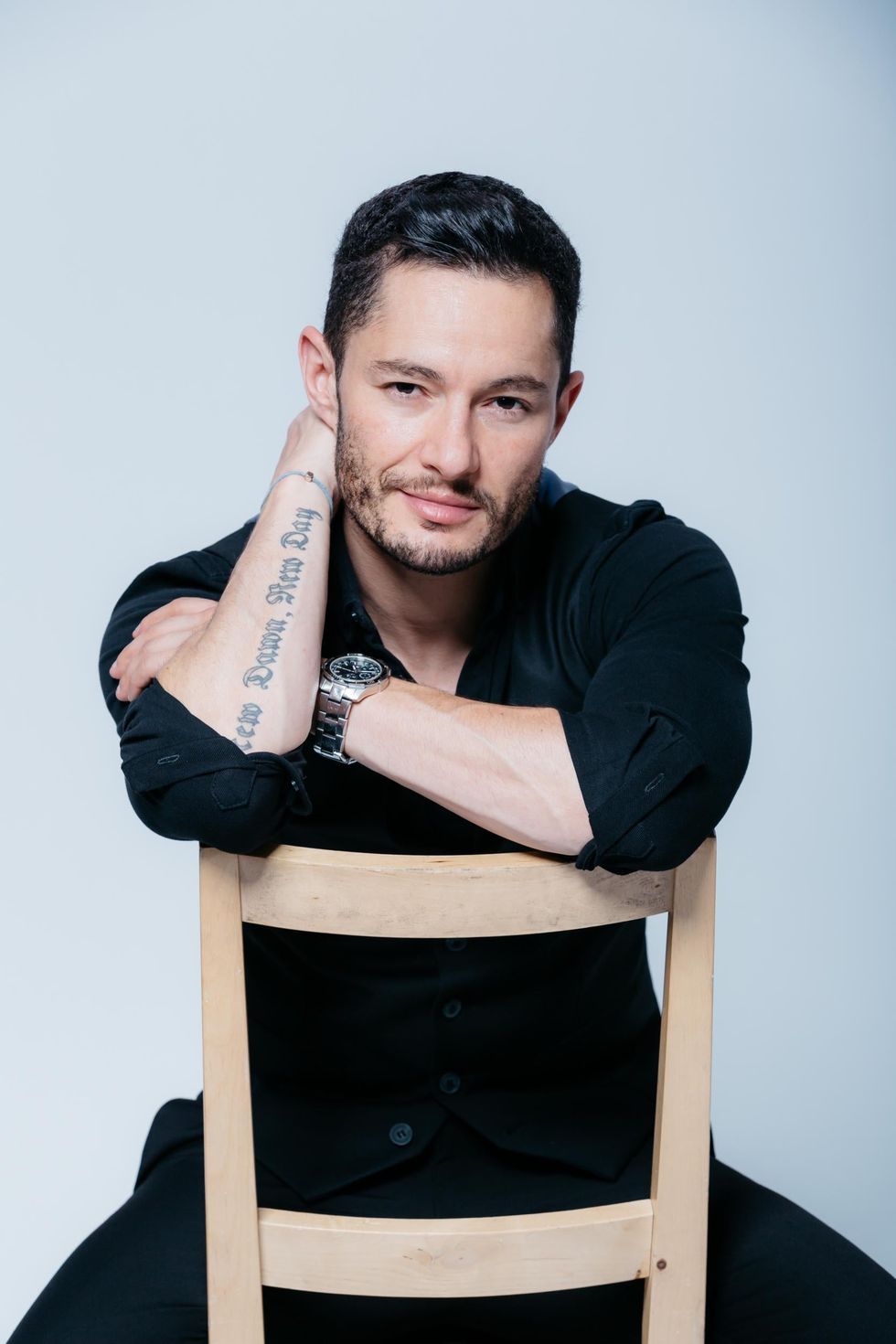
3. Dr Meg-John Barker.
Identifying as non-binary – which is a gender term that is not exclusively male or female – Dr Barker is a senior lecturer in psychology and the author of a number of books on the topics of gender and sexuality, including How to Understand Your Gender.
"How can cis people be better allies? Engage critically with the media," Dr Barker told indy100. "During 2017, the press published a lot of myth and misinformation about trans people. Please check in with trans-aware experts for the real statistics and history behind the stories, and call the media to account when they publish lies and whip up a moral panic.
"And remember that gender isn't binary. Over a third of people experience themselves as the other gender, neither gender or both genders. Try to move away from binary language like he and she, ladies and gentlemen, sir and madam. Include non-binary trans people by making sure you check a person's gender, pronoun and title before assuming. Learn about non-binary genders, they pronouns, and the title 'Mx'.
"As a non-binary trans person, it makes a huge difference to feel that my gender is seen by people. Most days involve fairly constant misgendering as I get called madam or sir in shops and cafes, she or he by people who don't know me – and some that do. And I struggle to find public spaces where I can get changed or use the toilet.
"It makes a huge difference that my wonderful sisters have been on board with my 'they' pronouns from the start, and correct people who get it wrong. I smile every time a colleague makes a point of correcting themselves and moving on when they mess up, instead of not bothering or making a big deal about it.
I breathe a sigh of relief every time a shop has unisex changing rooms. And I'm so happy when I hear that the Mayor of London is going to build gender neutral public toilets and get rid of 'ladies and gentlemen' announcements on the tube.
"As a trans person, it helps me when cis people recognise that we all go through transitions in relation to our genders. TV documentaries and other media trend to sensationalise trans bodies and lives in a 'freak of the week' format, which acts like we're totally weird for making social and physical changes.
"It was great recently when I chatted with a cis friend about her breast reduction surgery. She'd done it partly to alleviate migraines and partly because having large breasts meant that she was always being seen in either maternal or sexualised ways by other people, which didn't fit with her experience of her gender.
"It felt great that we could have a conversation about this operation we'd both had, which had benefited both our physical and mental health. Similarly, lots of cis people change their names at some point, or start expressing their gender differently through their appearance, or take hormones for various reasons, or have other surgical interventions.
"Let's get away from the idea that only trans people do these things, and recognise the diversity of ways in which people can relate to their genders."
4. Juno Dawson.
A best-selling author, Juno has written a number of books on LGBT+ issues including This Book is Gay, The Gender Games and What is Gender? How Does it Define Us? and Other Big Questions. Juno is also a columnist for Attitude Magazine.
"A lot of cis people worry about 'getting it wrong' in terms of being a trans ally," Juno explained to indy100. " As long as you're using your voice to support trans people and criticise the tone of the press, I don't think you can 'go wrong."
During the AIDS crisis and during Section 28, the gay community really relied on allies from outside of that group. Now, trans people badly need your support.
"A vocal minority of bigots want us to believe that 'everyone' has 'concerns' about trans lives. Will you let those people speak for you?
"The vilification of trans people in the media has impacted on my mental health. I'm fairly anxious to begin with, and daily requests from the media added to increased scrutiny in public places certainly hasn't helped."
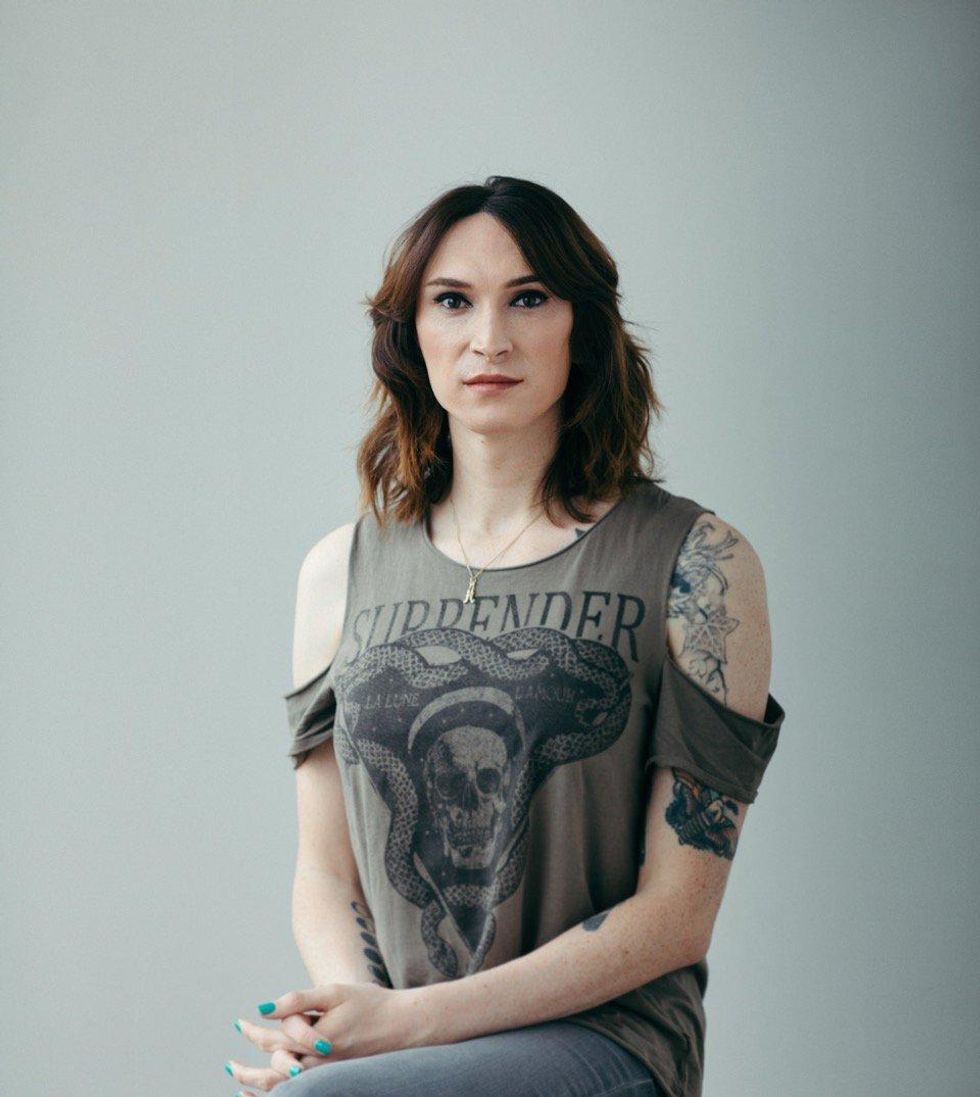
5 and 6. Fox Fisher and Owl.
Fox and Owl are partners in both work and love. Artists and activists, they're both advisors to All About Trans and they both co-founded and co-run the My Genderation film project together, which aims to celebrate trans lives and trans experiences through film. Owl is also a columnist for Metro.
"People often ask me how they can be better allies to trans people and how they can better support them," Owl told indy100. "Stand up for them. Tell that colleague or family member or friend that what they just said was offensive. Don't allow someone to blatantly misgender trans people. Don't let them trivialise our struggles.
Let them know we're humans and we deserve dignity and respect.
"Would you sit quietly if people were saying offensive things about black people? About gay people? If they said something offensive about you?"
Fox wholeheartedly agrees. "Trans people around you should feel supported no matter what stage they are at with their social or medication transition," they added.
We're such a diverse community and the voices of non binary people, trans people of colour, trans people with disabilities, trans sex workers and those who are even more marginalised need to be heard too. Not just the ones that fit the normative narrative.
"Buy a book by a trans person and give them as gifts to people. Write to complain about transphobic content in the media, which promotes fear-mongering, false information and/or dehumanises. Write to your MP to ask what they're doing for trans rights and equality. Retweet tweets by us. Sign petitions. Come to events.
"Help by elevating the voices of trans people, of all trans people, by sharing posts and speaking to those around you. You could point them in the direction of My Genderation, our ongoing film project – which includes a recent free guide to being trans in the workplace – donate to national trans organisations like Gendered Intelligence and Mermaids, and also go to your local trans support group like Not Alone in Plymouth. All are doing life-saving work."
7. Annie Wallace.
Annie has been a trans activist for more than 27 years since she first transitioned. As well as acting as a patron for Mermaids, Sparkle and Manchester Pride, she also currently stars in Channel 4 soap Hollyoaks as Sally St Claire and is a BAFTA nominated actress. In fact, when she undertook the role in Hollyoaks she became the first transgender person to play a regularly reoccurring transgender character in British soap history.
"Listen, fact check," she told indy100 when we ask about the moral panic being whipped up against trans people. "Don't let the haters pull you into a dead end. The truth is so much simpler than the rhetoric that has been spread by the naysayers.
From my experience, the majority of the population understand, support and encourage - but the minority hate us more now than they ever have before.
"It's such a shame that ultimately they will end up on the wrong side of history. It's 'nice to be nice'.
"People surprise me every day. I was in a DIY superstore recently and a middle-aged tradesman approached me. I was apprehensive about what he was going to say, but before I could say anything to him he stopped and said: ‘I think your storyline is amazing. You are a wonderful actress.' He then nodded and simply walked off. I burst into tears in the aisle.
"I hope that 2018 brings greater understanding and clarity to the situation that trans people find themselves in and that ultimately the small noisy minority of haters will realise they lost the argument before they began. I will continue to fly the flag for diversity and equality at home and at work. Last year, my character Sally St Claire helped deliver a baby, spent a week in Ibiza, was involved in a steamy love triangle and was caught up in a dramatic school explosion. None of these stories referenced the fact that Sally is trans.
"After becoming the first trans character to be played by a trans actress, in 2017 Sally came out as gay – another first. I am incredibly proud to continue pushing the boundaries on a mainstream show with a broad family audience, and de-stigmatising trans people by appearing in people’s living rooms as a trans woman simply living her life."
8. CN Lester.
CN Lester is a non-binary musician, writer and activist. They are the author of Trans Like Me: A Journey for All of Us and the curator of cross-genre arts night Transpose.
"The one thing I'd like people to remember is that you don't need to be 'perfect'," they explained to indy100. "You don't need to start with any specialist knowledge, though opening your mind to learning is part of helping.
But the most important thing to be a real ally to trans people is to start by believing us: that we're telling the truth about who we are and the prejudice we face.
"If you want to find out what cis privilege is, start by listening to trans people's stories of the hatred, ignorance and deliberate erasure we face. Listen to the ways in which many of us face many different types of prejudice. And listen to the ways in which we're asking you to make it better.
"And if you'd like to do more? One: educate yourself. Even a couple of hours reading information about trans people by trans people will help. Two: speak up when you encounter prejudice and ignorance. Don't wait for us to do it. Don't let it slide if it happens when we're not around. Three: donate whatever you can afford. The vast majority of trans charities are underfunded and staffed by volunteers. Even a small amount helps - check out Gendered Intelligence, Mermaids, UK Trans Info, Beyond the Binary and Stonewall Housing."
9. Travis Alabanza.
Travis became headline news in 2018 when they "experienced transphobia" in a Topshop in Manchester.
Complaints from trans customers like Travis led to Topshop changing their rules on gender-specific changing areas.
"I think what we need from cis people is for them to realise and see that we are currently in an epidemic of violence against trans people," Travis told indy100.
"We need them first to realise the urgency of the situation, and therefore for their allyship to stem from this common understanding of urgency. We no longer need silent, passive bystanders – we need cisgender people to actively support and uplift trans people – particularly those that are further marginalised or erased.
As a gender non-conforming black person, it's rare I can walk outside [presenting] how I wish to present and not experience harassment, threats of violence, actual violence, or a danger to my safety.
"We need allyship that understands that at the moment, for many trans people, going outside is already a dangerous task."
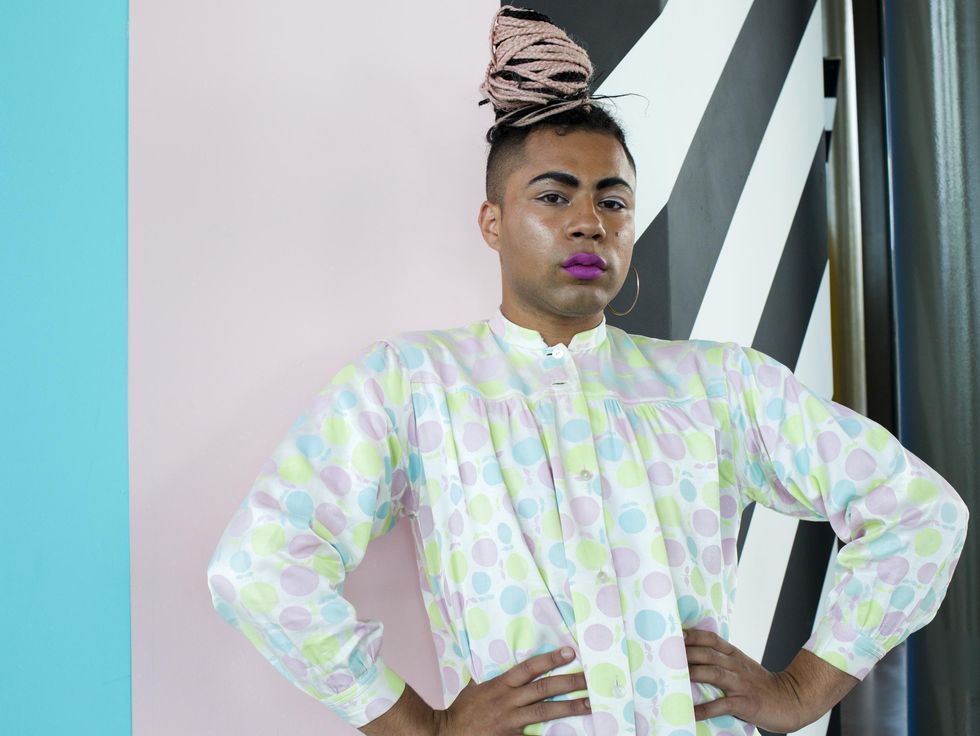
10. India Willoughby.
A pioneering TV journalist, India Willoughby was one of the first trans newsreaders on British TV and has also featured as a guest on Loose Women.
"To me, people are people," she told indy100. "The 'cis' word is one that 99.9% of the trans world has never heard before and just helps to create a 'them and us' situation. Gaining acceptance is a two-way street.
"Telling someone that you're trans, or meeting an openly trans person for the first time, can be a scary thing for both parties," she says. "My advice to trans allies would be to just treat people like me as they would any other person.
"If they are presenting as female or male, use the correct pronouns. If they want to use a particular non-specific pronoun, use it. Changing terms of address is difficult if you've known someone previously, so the trans person has to accept there may be genuine slip-ups. You'll know the difference if it's a deliberate dig.
We all know ourselves better than anyone else - so if you're a friend of someone who is trans, accept who they say they are.
"Personally, I don't think a trans person being bolshy or making dramatic demands or having immediate expectations of others is going to end well. It's all about compromise. And the best thing trans allies – and trans people themselves – can do, is listen to one another."
11. Kate O'Donnell.
First transitioning 14 years ago, Kate O'Donnell is a writer, performer, theatre maker and founded Trans Creative, which is a pioneering new trans theatre company for trans people and led by trans people.
"Allies are really important and we need them, and we want them, and we want to welcome them," she told indy100. "We do need allies because we’re a very small minority – a minority within a minority. There are some people out there who really are gatekeepers and can make our lives a lot easier, I think, and spread the message.
"One thing that’s really interesting is that we’re often seen as ‘other’ – the trans people – and I think cisgender people don’t understand what that ‘cisgender’ means sometimes, and they don’t refer to themselves as cisgendered. When cisgender people refer to themselves as cisgender, I feel like they get it, and they’re joining in with the narrative and the dialogue. Trans people often feel ‘other’, when really we’re just on a spectrum, so if cisgender people put themselves on that spectrum too… I find it very sexy! If someone says, ‘Well, as a cisgender person...’ I go, 'Oh my, they’re bright.'
"There’s a big shift happening around gender, and we all have a gender, and I think trans people are inviting people to free themselves up a bit.
We’re also seen as very tragic rather than positive. I think there’s something very positive about being trans. I get interviewed a lot for local radio and they go, ‘So tell us about your sad trans life.’ And I don’t have one! I’m actually a very successful theatre maker – I’ve just got funded for three years to open a transgender theatre company – so I’m good. How’re you doing in local radio? Changing that narrative would be great, so don’t come at us like we’re really sad.
"Being positively interested rather than unhealthily fascinated – there’s a real difference and people know what that means. There can be a fascination with our genitals and what we do in bed. There’s a bit in my show You’ve Changed where I list everything I’ve done as part of my transition – like getting a gender recognition certificate, surgeries, dealing with families, having gender dysphoria – then I tell the audience that all I want them to do is get my name right, call me a she and don’t be a dickhead.
"Another good thing to do is imagine that your sister, brother, mother, father or someone you know if they transitioned tomorrow, how would you feel? You’d feel mixed things, you’d feel protective. There’s some way we need to bring that experience closer to home.
"Fourteen years ago it was about hiding. I used to go to trans support groups and they literally told you to burn all your photographs and move away, and they were encouraging you to fit in a binary, but those two things have really changed. We’re much more unapologetic and proud now.
"Even if people come for us we need to remember that we’re out now, people can’t pretend we don’t exist and we’re not just a headline. People work with trans people, people go to school with trans kids, and we’re not like a dirty secret anymore."
12. Surat-Shaan Knan.
A diversity consultant and LGBT+ campaigner, Surat-Shaan Knan works for Liberal Judaism as an LGBT+ heritage manager and is responsible for the Rainbow Pilgrims project, which discovers and celebrates the hidden histories of LGBT+ migrants past and present. He is also a member of the Stonewall Trans Advisory Group, trans-network worker for the LGBT Consortium, and trustee with the Gender Identity Research and Education Society.
"As I see it, 2018 is going to be a great year to step up as a trans ally in the UK," he told indy100. "The UK Government has announced a consultation on reforming the Gender Recognition Act of 2004 in England and Wales to be launched early next year. The Scottish Government has already launched a GRA review in November 2017. The reform aims to make the process of recognition much more straightforward, this includes developing a self-declaration process and removal of the demeaning requirement to provide medical evidence; recognising non-binary people and young trans people - so more people are able to get the legal recognition they deserve.
"It appears that the call for reform – so far – has got a much warmer reception in Scotland than in England. Over the past months, there has been increasingly strident opposition – from the media and certain transphobic groups – to the basic human rights which we have articulated. Those voices, irrational and bigoted, and vitriolic must not be allowed to triumph over our calm, logical and well-thought-out vision of equality for all.
"Many established organisations and bodies will continue to lobby the UK Government and push for a reform.
But we need each and every one of you to act. Just like with same sex marriage, we can achieve this, standing side by side.
"I would like to encourage you to engage with these consultations: get involved with campaigns help make sure trans and non-binary people’s voices get heard, write to MPs, influence the politics of your party. Stand with your trans and non-binary colleagues, friends and family, all of us. More than ever, it’s time for the LGBT+ [community] and allies across the UK, across the sectors, to work together for full trans equality in the UK and beyond."
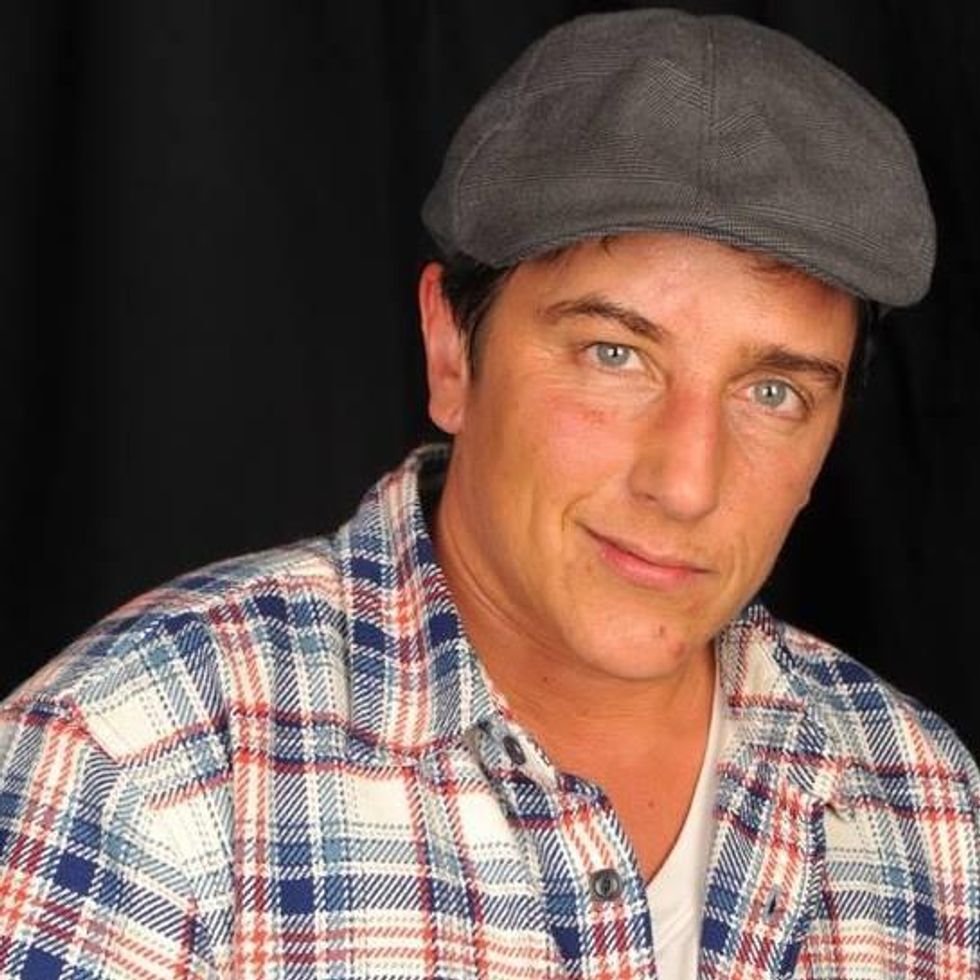
13. Riley Carter.
In 2015, Riley Carter became the first trans man to play a regular reoccurring trans character on a British soap when he starred in EastEnders as Kyle Slater. He works closely with LGBT+ charities and organisations and continues to use his platform to speak out on issues of gender and sexuality. In 2018, he toured the UK in a production of Birdsong, which saw Riley play a cisgender role as mouthy Welsh lad Evans.
"It’s horrible to see all the negative press that the trans community is receiving at the moment and people targeting the community for no reason," he told indy100. "All trans people are trying to do is fight for equality and the right to live their lives as happily as they can.
"That means by being able to receive the right treatment to start transitions without painfully long waiting lists to get assessed by a medical professional, and by being able to seek the right to change gender through a more fast and simple process, instead of having to prove themselves to officials about how they feel, and that how they identify is a true representation, and not just something they’re doing for 'attention'."
Having someone else be in control of how you can live your life, how you can present yourself to the world, is horrible and something that affects the mental health of trans people, which leads to self harm and suicide daily. This needs to stop!
"We need support and allies to help us through this fight! I can see when I meet people and can tell the difference between those who are merely naive and uneducated on the subject of trans people, and those who are just not interested in trying to learn and understand - and unfortunately, these people do exist.
"I don’t understand how, when a cisgendered person interacts with a trans person, that suddenly the respective barriers come down and it’s all of a sudden appropriate to ask personal details about genitals and what’s involved in their sex lives! I’m pretty sure that cisgender people don’t go round asking every other cisgendered person they meet those types of questions two minutes in, so why do they feel it’s appropriate to do so with a trans person? It's not, so stop!
"For those that are willing to learn and understand then here this. One important thing for cis allies is to listen! We’re all people at the end of the day, regardless of how we identify. I think a good, easy rule to start with would be if you’re in a social situation with a trans person, ask yourself: 'Would I ask a cisgendered person these questions off the bat?' If the answer is no, then don’t ask a trans person!
"You don’t have to understand someone’s gender to respect it."
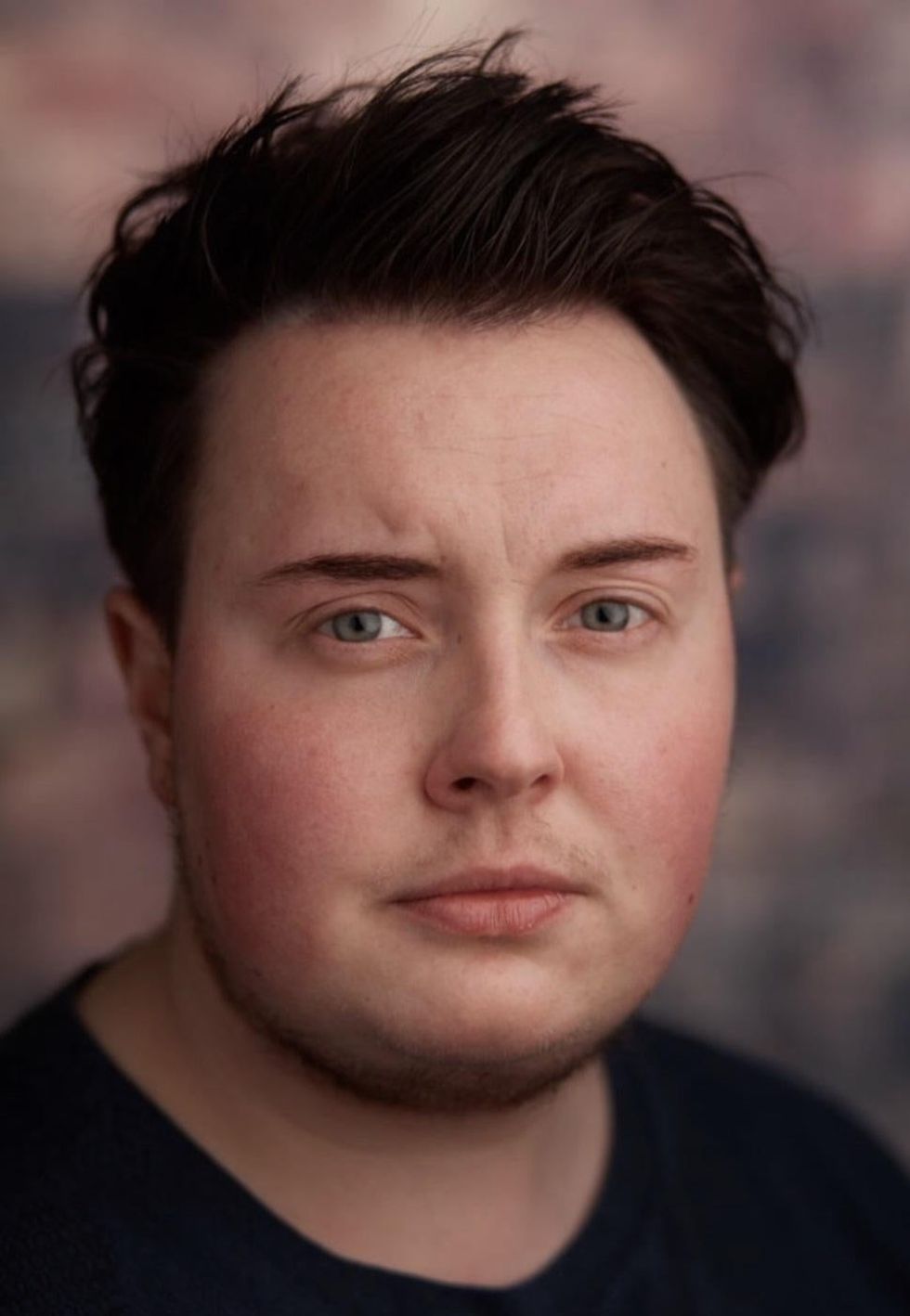
14. Freddy McConnell.
A journalist and video producer for The Guardian, Freddy is also the co-host of the Token podcast, which dissects the intersection of identity, culture and politics, and discusses what it's like to be a 'token' in today's world.
"I think it's understandable that cis allies – high-profile or otherwise – feel somewhat nervous about speaking out for trans equality," he told indy100. "Right now, mainstream and social media are largely intensely hostile. Allies worry about being targeted by the same transphobes – some of whom are high-profile and influential in their own right – who attack us.
"I hope they can be galvanised by two thoughts: firstly, that any criticism they incur will always pale in comparison to attacks on trans people, especially women and femmes – the very people who stand to benefit most from their allegiance; and secondly, that for trans people this fight is never optional.
"Allies, be motivated by the fact that progress requires action – not quiet assent – and that creating change is never easy. Or, look at it another way: if you find being a trans ally comfy, rewarding and straightforward at all times, it doesn't mean you are nailing it. In fact, it probably means the opposite.
"Another obstacle – whether in public or private spaces – is worrying to the point of paralysis that you will say the wrong thing and offend trans people. This might seem trifling to those at the coal face but it’s also a fundamental human experience. If it’s stopping allies speaking up, I’ll happily take a minute to say: I get it. I am a trans man who has often, egregiously misunderstood issues affecting nonbinary people, trans women and even trans men who perhaps grew up in a different generation or different city to me. However, it doesn’t mean I clam up. It means I keep learning.
If you're unsure of what to say then please, for the love of Sylvia Rivera, just ask. Ask Google, ask YouTube, ask elsewhere on social media and embrace the multitude of divergent opinions. Mine the extensive online resources of LGBT+ non-profits. And lastly – leaving space for them to decline if they're worn out or busy – ask your trans friends and contacts.
"And if you do mess up, rest assured that generally speaking, trans people – like all people – judge a mistake on intent, not content. Especially when it comes to personal interaction, we know the difference between malicious undermining and an innocent misstep. And we know that that difference matters a great deal. In fact, depending on the context, mistakes can be great ice-breakers that actually build trust and awareness.
"Earlier in transition, I attended a medical appointment where I felt put at ease precisely because the receptionist misunderstood why I was there. Within a few words from me, she realised her mistake, apologised simply and we experienced that greatest of bonding rituals: a relieved chuckle in a passing moment of shared vulnerability. Afterwards, I felt safe and seen, while she seemed reassured – in the moment and for future reference – that no offence had been taken. It could have gone another way, but in my experience, where two decent people are involved, it almost never does."
This article was originally published on indy100 in May, 2018.
More: Daughter comes out as transgender. Inspires father to transition.
More: Trans man shares his incredible before and after photos.
Top 100
The Conversation (0)
